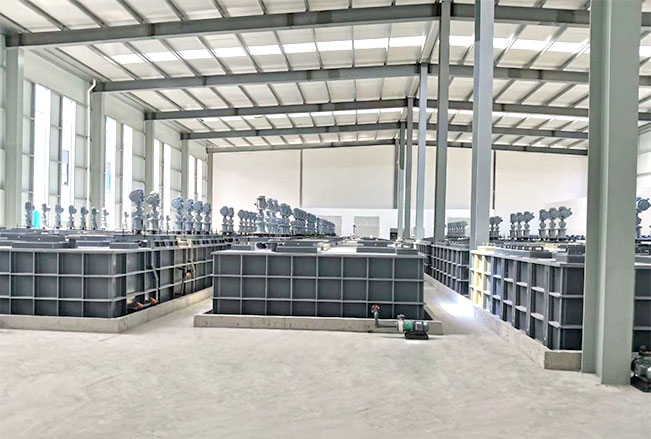A Mixer Settler is crucial in wastewater treatment for several reasons:
Removal of suspended solids: Wastewater often contains a significant amount of suspended solids such as sediment, grease, and fibers. These suspended solids not only affect water quality but can also cause blockages or damage to subsequent treatment equipment. A Mixer Settler effectively removes these suspended solids, reducing the burden on downstream treatment equipment.
Improved water quality: Treatment with a
Mixer Settler removes suspended solids from wastewater, significantly improving water quality. This helps wastewater meet discharge standards or meet reuse requirements, thus protecting the environment and water resources.
Reduced energy consumption: Compared to other wastewater treatment methods, Mixer Settlers have relatively low energy consumption. This is because Mixer Settlers primarily utilize the principle of gravity for separation, requiring no additional energy consumption.

Strong adaptability: Mixer Settlers can adapt to different water qualities and treatment requirements. Whether it's industrial wastewater or domestic sewage, Mixer Settlers can achieve effective treatment by adjusting operating parameters and adding appropriate chemicals.
Sludge reduction: While removing suspended solids, Mixer Settlers also consolidate sludge, reducing the amount of sludge generated. This helps lower sludge treatment costs and minimize environmental impact.
Key stages of pretreatment and post-treatment: Mixer Settlers typically serve as pretreatment or post-treatment equipment in wastewater treatment processes. In the pretreatment stage, Mixer Settlers can remove most suspended solids from wastewater, providing more favorable conditions for subsequent treatment. In the post-treatment stage, Mixer Settlers can further treat wastewater that has undergone biochemical or advanced treatment, improving effluent quality.
Mixer Settlers play a crucial role in wastewater treatment, with their characteristics of high efficiency, stability, and strong adaptability making them indispensable equipment in wastewater treatment.
